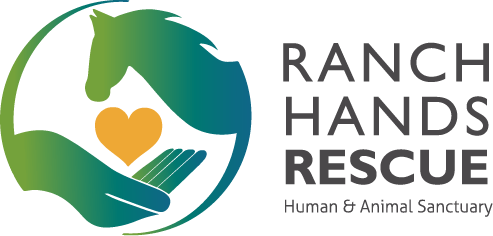Why Humans Are So Good At Adapting To Change
Adaptive: to make fit (as for a new use) often by modification
Maladaptive: marked by poor or inadequate ability to modify to fit
Humans are the most successful mammals on the planet BECAUSE we are the best at adaptation. We can adapt to fit nearly any climate, circumstance, or challenge. This is largely due to our massive neocortex, and specifically our frontal and orbitofrontal lobes. These structures give us the ability to spot patterns and create meaning from those patterns in ways that no other species can. As a result, we have survived so well that we GOT OUT of the food chain, which is an incredible biological achievement. Unfortunately, in modern society, that very ability of adapting to change can get us into trouble.
As social creatures, our brains evaluate how best to survive based on how well we belong to our group. In modern life, the earliest group is typically mom, dad, siblings, and/or a grandparent or two. Survival depends on getting your needs met by these primary caretakers. The brain looks for the “best fit” set of patterns to get the body’s basic needs met, both physical AND emotional. It will then associate meaning to those patterns in order to remember “what worked” without having to reevaluate every situation. This process is referred to as heuristics and works by reducing the cognitive load/energy expended by our calorie inhaling neocortex. An easy way to test the truth of this is to clear your mind, then read the following word: duck. Undoubtedly, something popped into your mind that is associated with that word. It may have been the animal, the movement, a brand name, an object, or any number of possible associations. The brain works off of these associative networks, and it works very well; except when it doesn’t…
We’re Wired to Adapt to Change
If you lived through an unhealthy social system (abuse), were rejected by a social system (neglect), or survived a traumatic event, then your brain and nervous system logged away whatever strategy (coping mechanism) kept you alive. Whether it was healthy or unhealthy, good or bad, right or wrong, it didn’t really matter to your nervous system. The nervous system is interested in one question: ‘Are we still alive?’ If the answer is ‘yes’, then the coping mechanism worked. This simple principle gets somewhat complicated when we take a look at social survival, which, as discussed previously, is about belonging in order to get needs met. Sometimes, the coping strategies that we develop in response to social survival yields the maladaptive, destructive coping mechanisms that those with trauma know all too well (drug abuse, careless risk taking, self-harm, suicidal or homicidal thoughts, over/under sleeping and eating, etc.). Let’s be clear here, all coping mechanisms are attempts to adapt to the external system in such a way that the individual survives by meeting the body’s needs. This process is not about shame, judgment, OR freedom from responsibility. Are you with me so far?
Now, here is where it gets interesting for trauma and trauma recovery. Remember that bit about making meaning from patterns? Well, we tend to internalize messages about ourselves through that process. For example, if you belonged to a healthy social system, you might have developed self-referencing beliefs such as, “I am good,” “I am worthy,” or “I have value.” If you belonged to, or were excluded from, an unhealthy social system you might have developed self-referencing beliefs such as, “I’m not good enough,” “I am bad,” “It is all my fault,” “I am powerless,” and/or “I am worthless.” Getting caught up in the cycle of these negative self-referencing beliefs, and the associated maladaptive coping mechanisms, is destructive and perpetuates the devastation of a traumatic event (i.e. PTSD).
Changing Your Thought Patterns & Beliefs
The bad news is that this is a passive process of survival that often becomes deeply ingrained below your conscious awareness, which causes your emotional reactions to unintentionally direct your choices without you even knowing it. The good news is that you can change these thought patterns and beliefs with intentional repetition of new associations! You can live life from a place of peace and congruence in which your emotions inform your choices rather than dictate them. Ranch Hands Rescue is a safe, comfortable sanctuary away from the grueling systems that led you to read this blog post. It is an opportunity to create adaptive associations that will better serve your life now and into the future.
Written by:
Landon C. Dickeson, MS, LPC
P.S. If you’re not sure about all this, I invite you to try something. Go to a safe, quiet place, then think of the last time you were angry and twisted off on someone. Ask yourself, “what vulnerable message was that anger protecting me from?” (If you need help with this, see our blog post “What is the anger protecting?”)
Once you have identified that message, replace it with a more adaptive, uplifting message. For example, “I am worth caring for” or “Not everything is my fault.” Hold this new message at the forefront of your attention and repeat it while you rhythmically pet something soft. Your choice of what to pet should be something safe, calming, and pleasant to the touch.
Mindfully and intentionally repeat your message in rhythm with your pets for 3 minutes. After going through this process for 3-5 rounds, just check in and see how you feel/what you think about the incident.
This exercise may sound silly, but what do you have to lose by trying it? I bet you will notice a positive difference, even if it is only by 0.5 points. Anyone who knows the pain of trauma will agree with me that even 0.5 of a difference is a welcome reprieve!

